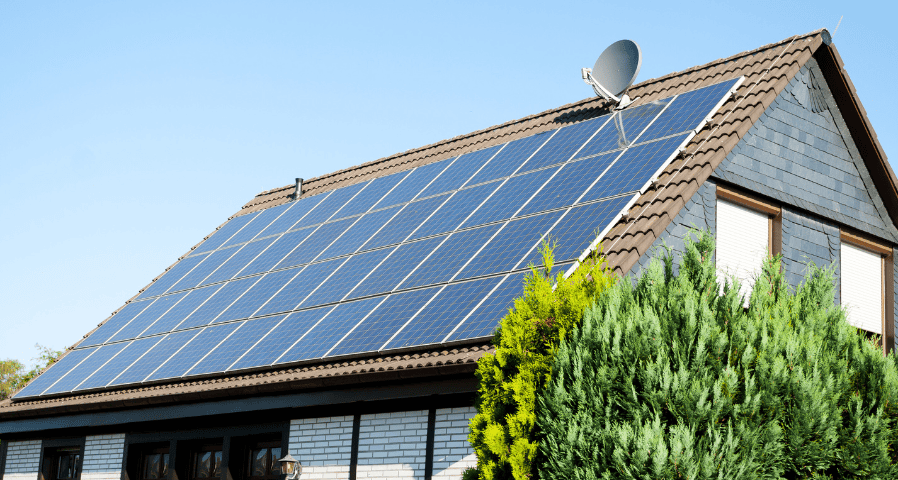Outsourcing Maintenance & Lighting Upgrades: How Property Managers & MUDs…
Outsourcing lighting upgrades and maintenance needs improves tenant retention and boosts ROI for property managers.

As the demand for renewable energy grows, solar power continues to dominate as one of the most accessible and effective solutions for both households and businesses. While the technology behind solar panels remains the same, converting sunlight into electricity, the distinction between residential solar panels and commercial solar panels is significant. From size and design to warranties and cost structures, each type is tailored to serve different energy needs.
One of the most visible differences between residential and commercial solar panels lies in their size. Residential solar panels typically measure about 45 by 70 inches, making them compact enough to fit seamlessly on home rooftops. These smaller dimensions are designed to balance energy output with aesthetics, producing enough electricity to power the needs of a single household without overwhelming the roofline.
By comparison, commercial solar panels measure closer to 45 by 90 inches. This increase in surface area allows them to generate substantially more electricity, which is an essential feature for powering offices, warehouses, and large-scale facilities. The larger format maximizes efficiency while meeting the high energy demands of businesses.
The design of solar panels often reflects their intended use. Residential solar panels typically prioritize appearance, as they need to blend with the home’s architecture. Many feature sleek, all-black designs and are usually monofacial, meaning they generate electricity from one side. This design keeps them visually appealing while remaining practical for homeowners.
Commercial solar panels, however, prioritize function over form. They often use silver frames and have a more utilitarian appearance. In terms of performance, commercial panels can be either monofacial or bifacial. Bifacial panels capture sunlight from both sides, taking advantage of reflected light from rooftops or ground surfaces. This makes them particularly effective on flat commercial roofs where panels can be angled for maximum sunlight exposure.
Another key difference between residential and commercial solar panels is the warranty coverage. Residential solar panels typically come with longer product warranties, often lasting 25 years. This extended coverage reassures homeowners that their investment will remain protected for decades.
Commercial solar panels, on the other hand, usually have product warranties ranging between 12 and 15 years. Although shorter, these warranties reflect the faster pace of commercial energy demands and the larger scale of installations. However, both residential and commercial systems typically include a linear production warranty of 25 years, ensuring panels will continue to generate a guaranteed percentage of their rated power output over time.
Cost is often the deciding factor for many property owners considering solar installations. Residential solar panels generally range from $2.70 to $4.00 per watt, with an average cost of around $2.70 per watt before incentives. Several factors influence these prices, including roof type, height, slope, and additional installation complexities such as underground trenching. Fortunately, homeowners can offset costs with federal tax credits, rebates, and solar renewable energy credits (SRECs).
Commercial solar panels, in contrast, average about $2.30 per watt, making them more affordable on a per-watt basis. The lower cost is largely due to economies of scale: larger systems spread equipment and labor costs more efficiently. Businesses can also take advantage of multiple financial incentives, including the federal Investment Tax Credit (ITC), accelerated depreciation benefits, and even USDA REAP Grants for rural facilities. These incentives significantly reduce the upfront investment for businesses.
Ultimately, the decision between residential and commercial solar panels depends on the scale of energy consumption, available space, and budget priorities. Residential solar panels are best suited for homes, offering a smaller size, sleek aesthetics, and long-term warranties. Commercial solar panels, meanwhile, are engineered for larger buildings and industrial settings, prioritizing efficiency, higher energy production, and cost advantages through economies of scale.
As solar adoption accelerates across the country, understanding these distinctions helps homeowners and business leaders make informed choices. Whether powering a household or a multi-acre facility, solar panels remain a cornerstone of clean energy, with residential and commercial options tailored to meet specific needs.
Click here to read the full article, originally published by Paradise Energy Solutions.